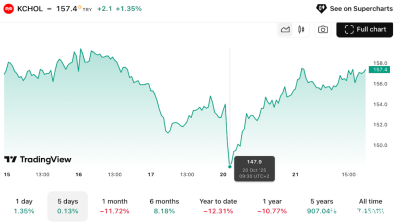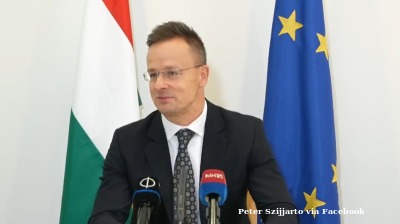President Maia Sandu’s Party of Action and Solidarity (PAS) received a landslide 52.45% of the votes in the general election in Moldova on July 11, preliminary results showed early on July 12.
The result gives the PAS robust majority support in parliament to form the new government, allowing Sandu to press ahead with her reform agenda.
As the results came in, Sandu talked of building “a free country and a state that takes care of its citizens”. Sandu is a staunch supporter of Moldova’s integration with the EU, and her party also campaigned on an anti-corruption and reform platform.
“I hope today will be the end of a hard era for Moldova, I hope today will be the end of the thieves’ reign over Moldova,” the president wrote on Facebook.
“People must soon feel the benefits of a clean Parliament and of a government that is actually concerned about the population’s problems. Today's energy from voting must be used to change Moldova … As president, I want to work alongside an integral and competent government to unite society and put the interest of citizens at the heart of government efforts.”
After the counting of votes from 99.3% of polling stations, the PAS had 25 points more than its rival, the Bloc of Communists and Socialists, which was on 27.41%.
The turnout was 48.4%, somewhat lower than the 50.6% in the previous general elections held in 2019.
Just only one other party crossed the threshold to enter parliament, the Sor Party (5.79%) led by fugitive businessman Ilan Shor.
Based on the preliminary results, PAS would get 62 seats in parliament, the Communists and Socialists 32 and the Sor Party seven seats.
While this allowed the PAS to form a government, it will not be able to amend the constitution, for which a minimum of 71 of the 101 MP votes is needed.
Among the parties left outside the legislative body are Renato Usatii’s Our Party (4.12%), the Dignity and Truth Political Party (PPDA, 2.34%) led by Andrei Nastase and the Democratic Party (PDM, 1.82%) previously controlled by fugitive oligarch Vlad Plahotniuc.
Since winning the presidential election last autumn against Socialist Party leader and incumbent president Igor Dodon, Sandu had been pushing for a snap general election to replace the parliament in which Dodon’s Socialists were the largest party.
She finally achieved this in April after the Constitutional Court ruled that the state of emergency instituted by lawmakers — criticised by Sandu and her supporters as an attempt to block early elections — was unconstitutional.
News

Istanbul prosecutors summon Koc official and Akfen boss in Imamoglu investigation
Word of move sparked volatility in stocks.

Ukrainian military strike for first time disrupts operations of Western oil majors
Drone attack damage caused to Russian gas processing plant forces scaling back of output at Kazakh field partly owned by Chevron, Shell and Eni.
_Foto2_Divulgação_Foresea_(1)_1761062969.jpg)
Petrobras secures controversial Amazon drilling licence ahead of COP30 climate summit
Brazil's Petrobras has obtained authorisation to drill an exploratory well near the mouth of the Amazon River, sparking fierce criticism from conservationists just weeks before Brazil hosts UN climate talks.
_1761050969.jpg)
Revolut clears final hurdle for Mexico banking debut
Revolut has received final authorisation from Mexico's banking regulator to commence operations, positioning the London-based fintech to launch services within weeks.




